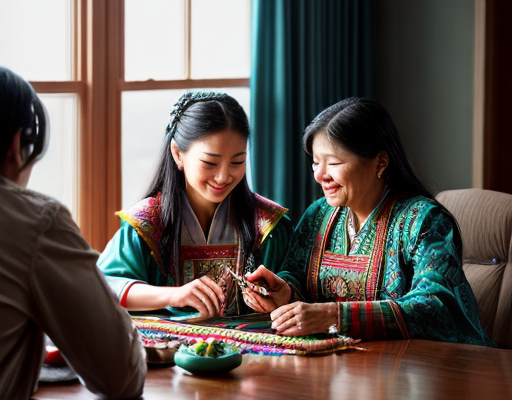
How to Host a Family Heritage Night and Celebrate Your Roots
“`html
How to Host a Family Heritage Night and Celebrate Your Roots
Introduction
Celebrating family heritage is a beautiful way to honor your past and share your history with loved ones. Hosting a Family Heritage Night is not only a wonderful opportunity to bond with your family but also to educate and reconnect with your roots. This comprehensive guide will walk you through the steps of creating a memorable and informative evening that celebrates your unique family history.
Planning Your Heritage Night
Begin by setting a date that works for most family members. Craft a special invitation that hints at the heritage theme and send them out well in advance. Divide the responsibilities among family members, such as researching family history, preparing traditional dishes, or decorating the venue to represent your cultural background.
Researching Family History
Every family has a story, and it’s important to delve into your history to share that narrative. Utilize online genealogy tools, interview older relatives, and collect family records. Document your findings and prepare to present them in a way that is engaging to all generations present.
Creating a Heritage Display
Set up a display area featuring family photographs, heirlooms, and historical documents. Include brief descriptions or stories next to each item to provide context. This interactive exhibit will serve as a central point for family members to learn and ask questions.
Curating a Cultural Menu
Food is a vital part of any cultural celebration. Create a menu filled with traditional dishes that represent your family’s heritage. Encourage family members to prepare recipes passed down through generations or to share a meal that has a special meaning to your family’s history.
Sharing Family Recipes
As part of the menu, include a segment where family members can share the origin stories of certain dishes, including anecdotes or fond memories associated with them. This creates a personal connection and enriches the dining experience.
Celebrating Through Music and Dance
Music and dance are powerful expressions of cultural heritage. Prepare a playlist of traditional music or even hire local performers. Encourage family members to participate or provide a demonstration of dances tied to your heritage.
Interactive Storytelling Activities
Storytelling is a captivating way to pass on family legends and lore. Organize a storytelling circle where elders can share tales, or have various family members enact parts of your family’s history. This will not only entertain but also preserve the oral history of your lineage.
Hosting Workshops
Plan workshops or activities that give family members hands-on experience with traditional crafts or skills. This could include weaving, pottery, playing a folk instrument, or any other craft that holds significance in your family’s culture.
Documenting the Event
To make sure these precious moments last, document the event through photographs, video, or even audio recordings. This archive will become a part of your family’s heritage itself and can be shared with future generations.
Dressing in Traditional Attire
Encourage family members to dress in traditional clothing if such traditions exist in your culture. This adds an authentic touch to the celebration and offers an opportunity for family members to express their cultural identity.
Family Heritage Quiz
Create a fun and educational quiz about your family’s history and culture. This can include questions about ancestors, traditions, and the meaning behind certain customs. It’s a great way to engage the younger family members and spark their interest in their heritage.
Creating a Time Capsule
Collect items that represent your family now, from photographs to letters to recent artifacts, and seal them in a time capsule with the intention of opening it at a designated future family gathering. This project is a beautiful way to connect the past, present, and future.
Celebration Through Food Tasting
Arrange a food tasting session where family members can sample small portions of each dish and discuss their flavors, origins, and significance. This is especially engaging for children and can broaden their culinary horizons.
Acknowledging Family Achievements
Family Heritage Night is also an ideal time to acknowledge and celebrate the achievements of family members. Create a space in the program to honor those who have made significant accomplishments, whether cultural, educational, or personal.
Legacy and Story Sharing
Provide an open platform for family members to share their personal stories or to discuss the legacies they wish to leave. This fosters a sense of individual contribution to the family’s ongoing history.
Closing the Evening
Conclude the evening with a ceremonial act that reflects your cultural background, such as a toast, a group song, or a moment of silence to honor ancestors. This creates a moment of reflection and bonding as the event comes to a close.
Sharing Your Experience with Others
After the event, consider sharing your experience with a wider audience. This could be through a family blog, social media, or a community newsletter. It’s a wonderful way to encourage others to explore and celebrate their own heritage.
Conclusion
A Family Heritage Night is a powerful way to uncover and celebrate the roots that have shaped who you are. It provides an enriching experience for the whole family and draws you closer together through shared stories, traditions, and memories. With careful planning and heartfelt participation, this can be an event that everyone looks forward to year after year, continually fostering a deeper appreciation for your family’s unique journey through time.
“`

